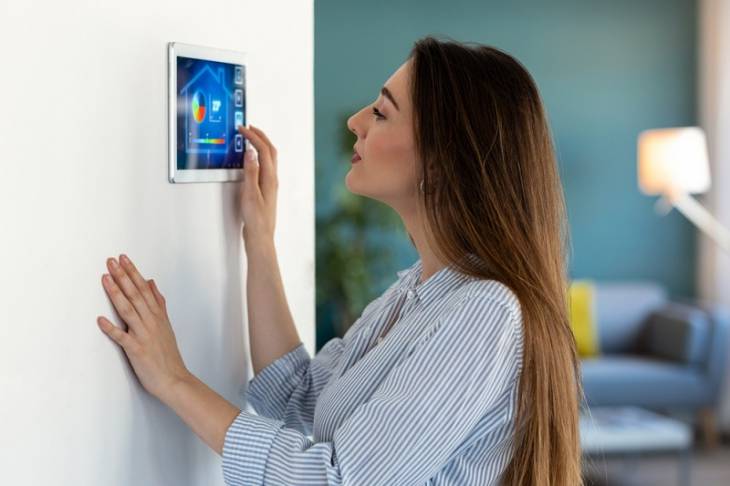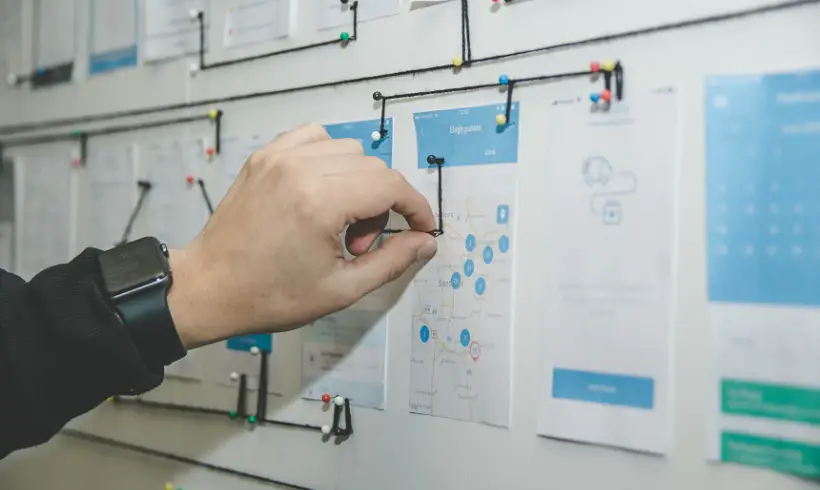The Evolution of Home Automation: What Comes Next?

Since the 1930s, the collective human imagination has run wonderfully wild with the possibilities of technology already long-brewing in the minds of great thinkers. The 1939 New York World Fair started as a project to undo decades of corruption in New York City, but its bold vision of showing a "world of tomorrow" brimming with innovation. While there were other exhibitions around the world before it, it was at this time that people started to envision a world of all types of automation, including smart home services that save money and enhance life.
Over the course of that 80 years—during subsequent World's Fairs and in daily life—we have experienced many of those possibilities coming to light in our times. Think about the television remote control and how otherworldly that might have felt to people upon its arrival in 1956, but little did they know Nikola Tesla had imagined and described the device in U.S. Patent 613809.
Throughout human history, innovators have sought ways to make life easier and more manageable with tools and technology available at various times.
Let's take a closer look at the evolution of and modern approaches to home automation and security.
1. Early Man Throughout Pre-Industrial Revolution
The homefront and family have always served as the inspiration for innovation with our ongoing fight for survival. While that might sound dramatic within our modern context, it was certainly necessary throughout history when security and convenience were life and death matters for everyone from prehistoric hunters and gatherers to anyone living without electricity.
Before electricity and indoor plumbing, modern advances might have seemed primitive to us, but they were as invaluable to those generations as our smartphones are to us. Their innovations often involved finding new ways to turn natural objects into tools, such as sharpened stones turned to axes and chisels.
2. The Industrial Revolution
In the early 1900s, the world experienced the innovation that arose out of and aid of the industrial revolution. It was a time that allowed people to enjoy the first modern iterations of home appliances, such as vacuum cleaners, washing machines, clothes dryers, refrigerators, and electric dishwashers.
While these weren't "smart" appliances by any stretch of the imagination, they were the equivalent to people of the times in terms of the time savings that eased and enriched their lives.
3. The 20th Century
The 20th Century gave birth to radio, television, the telephone, and the automobile. Innovation became less a novelty than an inevitability with the imagination and tenacity of inventors in all fields of thought and an eager and receptive public.
Not only were these basic innovations introduced in that 100-year span, but they were refined rapidly and drastically, making all the listed items available in ever-evolving forms, allowing us to go anywhere with convenience and security in our cars, taking along our cell phones and portable televisions and radios.
The smart home was only a matter of time in the minds of most people who had grown up reading science fiction stories and novels and watching "The Jetsons" cartoon series. People still muse, wondering when we'll all have flying cars, as seen in the program.
4. The 21st Century and Beyond
Now that we have robots to automate and perform a myriad of tasks, self-driving cars are a reality, and AI-powered tools are common these days for error-free implementations, what's left?
Let's not forget that we can now save time, money, and energy with automated smart home solutions like smart home thermostats and smart home lighting, among so many other smart home features meant for and designed to deliver on far more than convenience.
Smart home automation offers everything from entertainment to unprecedented convenience and security, protecting your property from trespass, theft, and many other dangers, which is crucial to a happy, secure, and healthy home life. The quest for innovation, especially regarding home automation, is never likely to stop or even slow down.
So, what's next for home automation?
Looking back to our ancestors fighting their way out of cave homes with handmade knives to pioneers working by candlelight using horsepower in the fields, then on to enjoying refrigeration, television, smartphones, and smart home security, it's tough to imagine what's left to do and add to convenience, security, and savings at home. But there is plenty more still likely to follow.
The innovators are on it and advancing technology is likely to deliver even more developments in automation technology, so stay tuned for the next phase of home automation this century.









![Global Expansion: Top Tips to Expand Your Business Across the World [node:title]](/sites/default/files/styles/front_featured__front_/public/global-business-expansion.jpg?itok=yAV7GTAl)




























